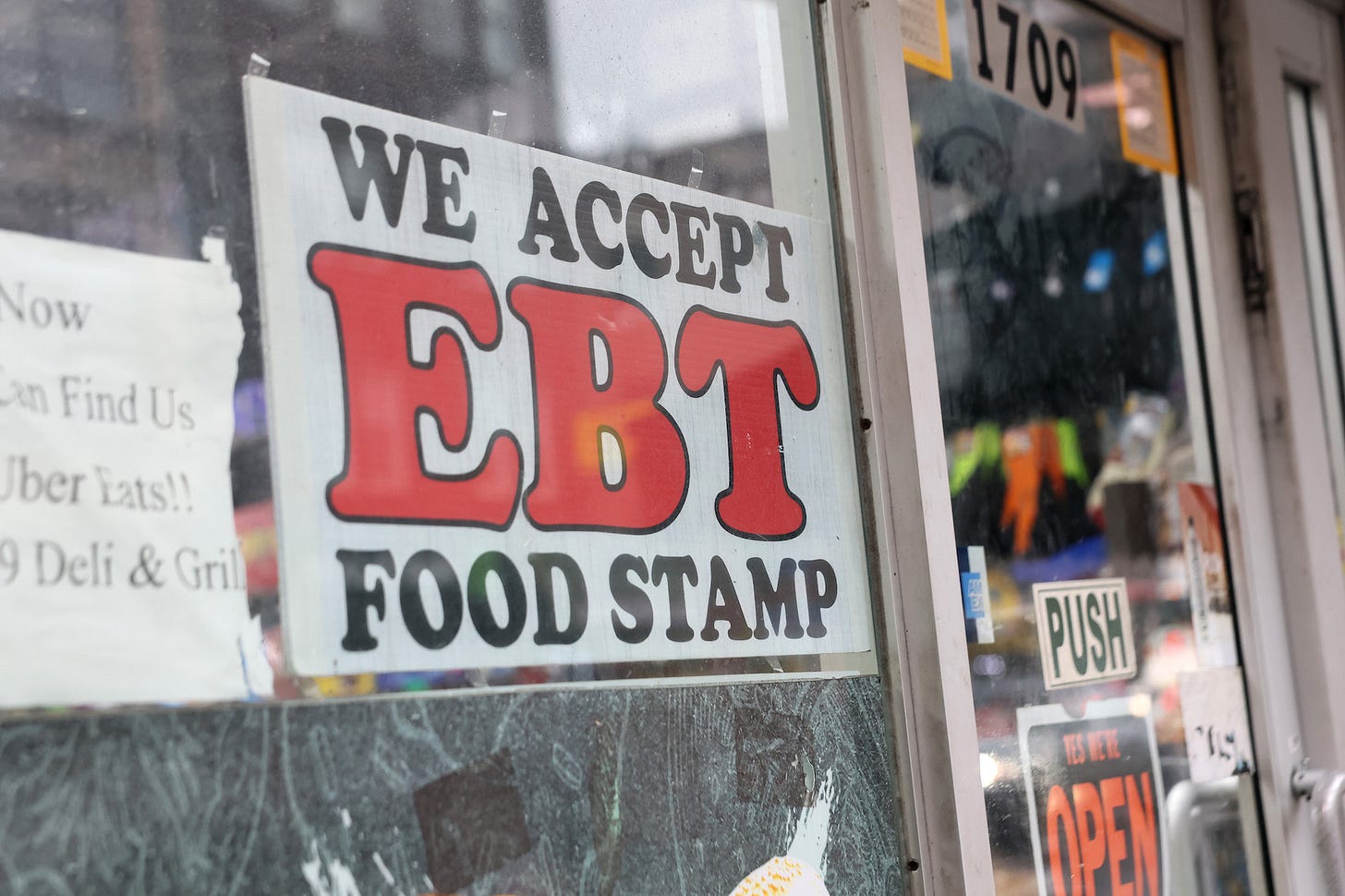Rising This Week: SNAP judgments
It took orders from two federal judges and a tsunami of calls to Congress for Trump to express concern for millions of Americans affected by his plans to suspend food assistance.

Only after two federal judges told him suspending food assistance would be illegal, Donald Trump belatedly declared on social media: “I do NOT want Americans to go hungry.”
Of course, that wasn’t Trump’s complete sentence.
Unable to express compassion for the poor without political invective against his opponents, Trump actually wrote: “I do NOT want Americans to go hungry just because the Radical Democrats refuse to do the right thing and REOPEN THE GOVERNMENT.”
In reality, Trump wrote that statement only after coalitions of Democratic-led states, Democratic-led cities and nonprofit organizations brought successful federal lawsuits forcing him to use the contingency funds that Congress ordered him to spend for this purpose.
“There is no question that the congressionally approved contingency funds must be used now because of the shutdown; in fact, the President during his first term issued guidance indicating that these contingency funds are available if SNAP funds lapse due to a government shutdown,” U.S. District Judge John McConnell wrote in one of the orders.
Over in Massachusetts, U.S. District Judge Indira Talwani found that a coalition of states was “likely to succeed” in proving that suspending SNAP funding would have been illegal.
One of the parties who won that ruling was a target of Trump’s retribution campaign: New York Attorney General Letitia James.
“Millions of families rely on SNAP — or food stamps — to survive,” James wrote in a statement. “The administration tried to use the shutdown as an excuse to withhold food assistance from vulnerable Americans, but the court has made clear that the law requires those benefits to continue. The federal government cannot simply walk away from its obligation to feed the people it serves.”
Just hours before both rulings, Trump spent most of the day showing off his marble-and-gold renovation of the White House’s Lincoln Bathroom online, and he had been preparing for a “Great Gatsby”-themed party at Mar-a-Lago.
The 11th hour orders didn’t land soon enough to immediately help the 42 million people in the United States who rely on SNAP, and the lapse in benefits could last for days or even weeks through much of the country.
The Trump administration faces deadlines in both courts on Monday. McConnell ordered the government to make the full SNAP payments at the beginning of the week, and Talwani set a deadline for the government to disclose its plans for funding the program for the rest of the month. Expect this story to develop quickly as the week begins.
The SNAP litigation is part of a pattern in Trump’s second term of ignoring the mandates of Congress.
“When Congress established the program in 1964, it did so in part to utilize the nation’s food supply ‘to the maximum extent practicable to safeguard the health and wellbeing of the Nation’s population and raise levels of nutrition among low-income households,” Judge Talwani noted in her ruling.
The Food and Nutrition Act makes the distribution “mandatory,” Talwani wrote, obligating the government to tap into the contingency reserve during the shutdown.
This comes to a head just as the Supreme Court will hear another case about Trump’s unilateral actions affecting people’s financial struggles: his global tariffs scheme.
Before Trump, no U.S. president claimed the power to unilaterally impose tariffs through a supposed emergency — let alone a manufactured one — because only Congress has the power to impose taxes. The Supreme Court will decide whether this will be another executive power that Trump can usurp from the Congress, who are the representatives of the people under our constitutional structure.
Late last week, Trump formally announced a plan to restrict refugee admissions to a historic low of 7,500 a year, prioritizing white South Africans. The Miami Herald is reporting that Trump might order attacks on Venezuelan military installations “at any moment.” The common thread is all of these actions are a flagrant disregard for the powers of Congress and its duly passed laws.
Trump often says that he has the power to take these actions under a supposed mandate of a 2024 election that he won by just under 50 percent of the popular vote. But if his policies truly had the popularity and legitimacy that he claims, Trump wouldn’t struggle to get the backing of the Congress under his party’s control.
That’s why stories like these are about more than poverty, economics, immigration, and international relations, although all of these issues are important on their own.
They are stories about authoritarianism and democracy.
They are stories about whether the President of the United States is subject to the nation’s Constitution and the laws enacted by the duly elected representatives of the People.
It’s the framework through which this newsletter views the court cases that shape our time, focused on the rights and levers of power that can — and have — served as a check against authoritarianism.
To support that approach, please consider becoming a paid subscriber if you have the means. Doing so also unlocks detailed weekly listings of court cases, protests and other forms of civil engagement in “Rising This Week.”
Those listings start below.




